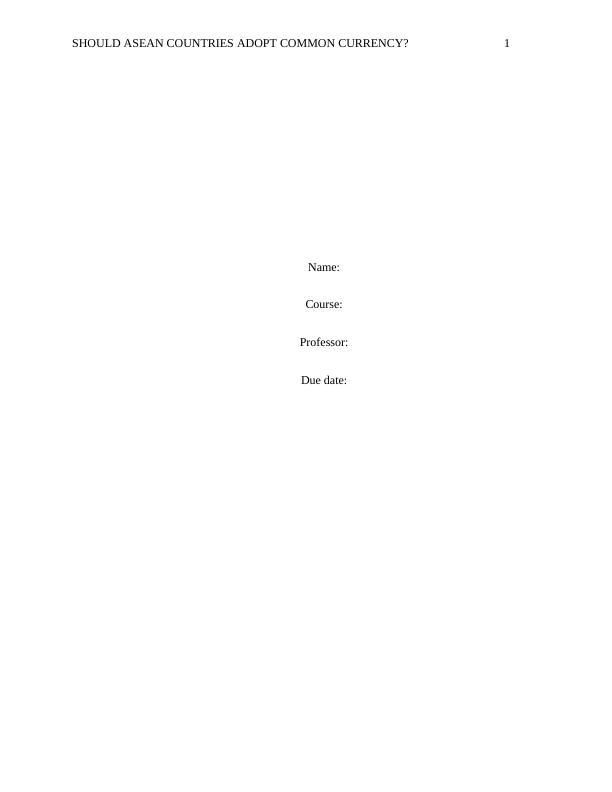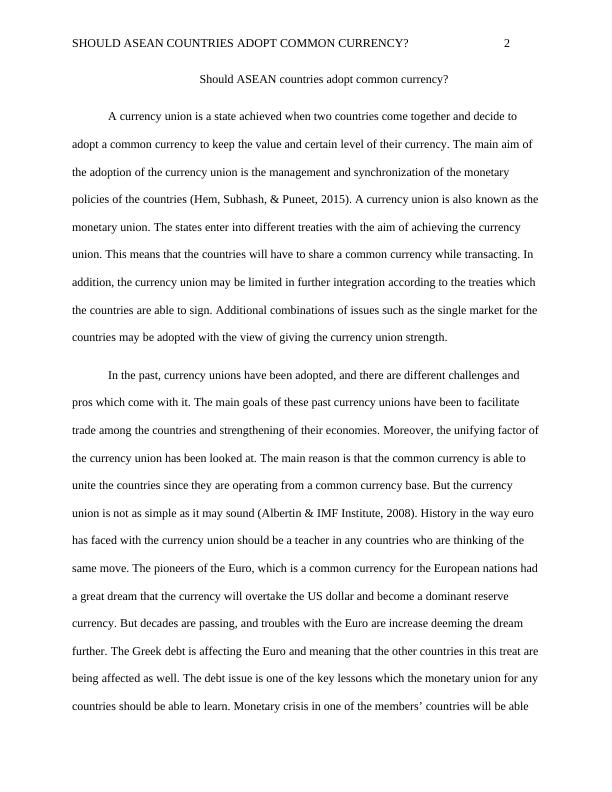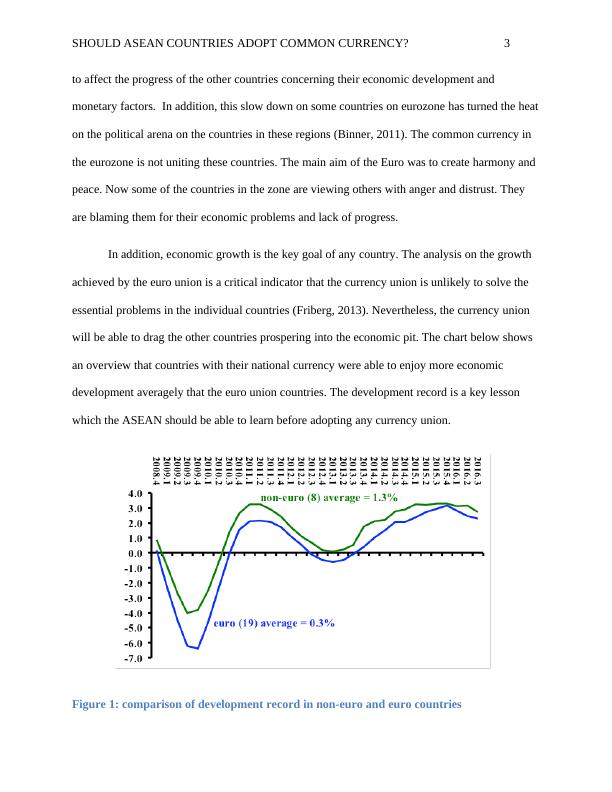Ask a question from expert
Should ASEAN countries adopt common currency?
10 Pages2761 Words347 Views
Added on 2020-04-21
Should ASEAN countries adopt common currency?
Added on 2020-04-21
BookmarkShareRelated Documents
End of preview
Want to access all the pages? Upload your documents or become a member.
Report on the International Finance
|9
|2465
|75
Eurozone Crisis Assignment
|13
|2775
|100
European Monetary Union and its Impact on the Global FX Market
|7
|1506
|100
Principles and Applications of Macroeconomics
|10
|3881
|65
Global Economic Implications of Greece's Exit from Eurozone in 2016
|11
|4175
|93
International Financial Markets Institutions
|10
|2720
|63


